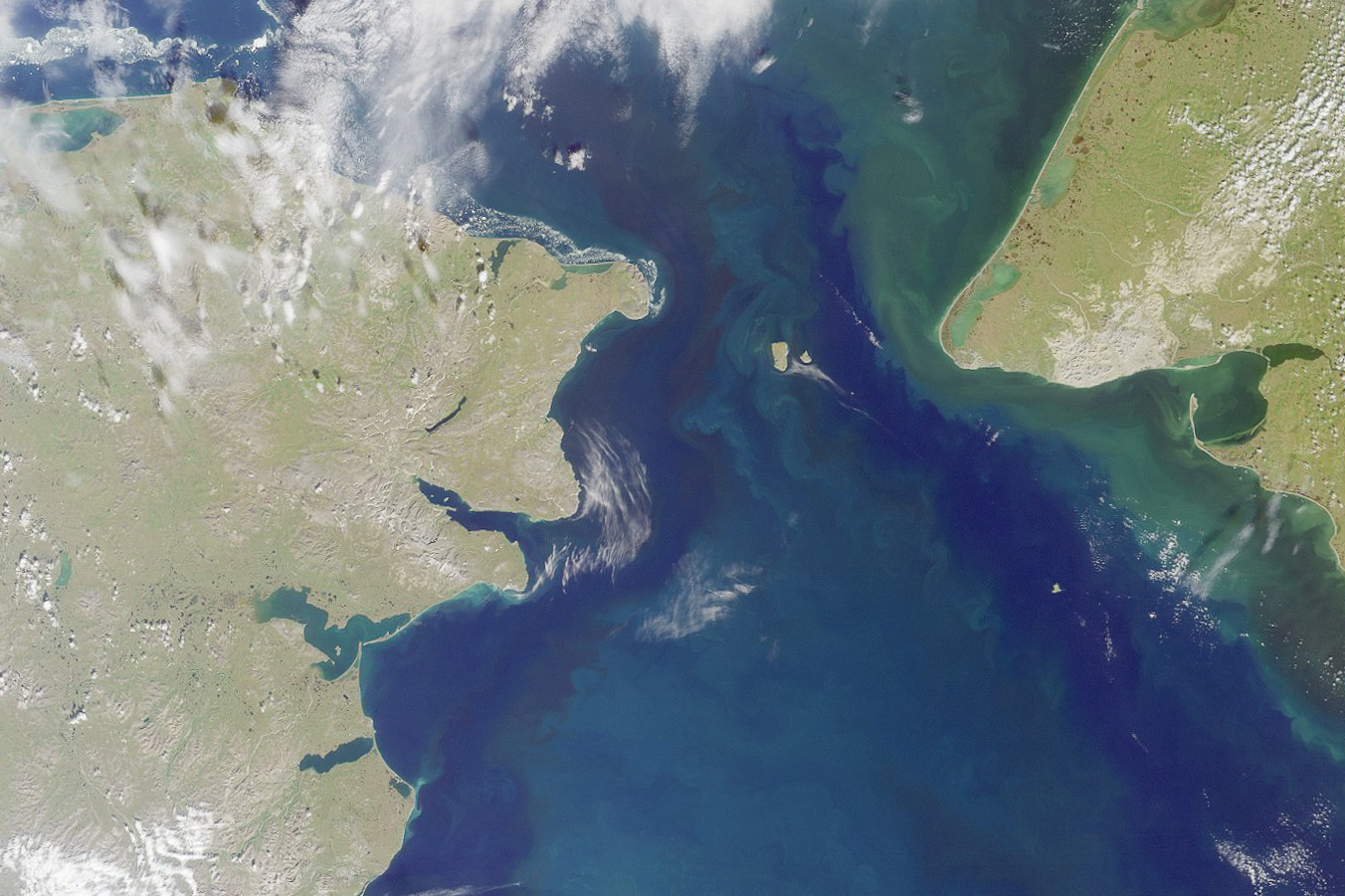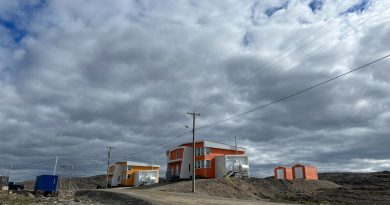Russia and US close to agreement on Beringia cross-border park
 An agreement between Russia and the United States, expected to be reached by the end of the week, would create a common protected area in the Beringia region, where Native people share familial ties, hunting quotas and a common language.
An agreement between Russia and the United States, expected to be reached by the end of the week, would create a common protected area in the Beringia region, where Native people share familial ties, hunting quotas and a common language.
Federal officials at high levels of government hope these common roots can strengthen the overall relationship between the two countries.
Beringia is the area where the land bridge connecting what is now Siberia and Alaska existed 10,000 to 25,000 years ago.
The land bridge allowed animals, plants and humans to migrate across its grassy plain in the Arctic. As glacial waters melted, the bridge eventually became submerged, but the people in the regions remain connected to one another to this day by familial ties, traditions, language and environment. The people in the region also share subsistence quotas for hunting of several species, including bowhead whales.
How did the Transboundary Agreement come about?
The idea for an International Park in Beringia has been floating around since the 1960s, but an agreement between then-president Bush and Gorbachev started it on its course.
The Shared Beringian Heritage Program, created in 1991 by former U.S. President George H.W. Bush and Russian President Mikhail Gorbachev, was originally formed to establish an International Park.
In 2009, the interest for such an agreement was renewed at high levels of government in hopes that a common bond would stengthen international relations. In 2011, President Obama released a statement pledging for increased cooperation between the U.S. and Russia.
However, the creation of such an International Park, with its regulations and “lock down” of land, was met with resistance by Native people, according to Janis Kozlowski, program manager at the Beringian Heritage Program. Memories of past legislation where the federal government made promises it didn’t keep still haunt them. A Transboundary Agreement would create a similar agreement at a lower level.
What would the Transboundary Agreement do?
The agreement would unite protected federal lands under a low-level agreement between nations.
“The purpose is to strengthen the relationship and maintain the ties between indigenous people, scientists, educators, hunters, elders and youth in the region through a formal understanding” the Beringian Heritage Program’s website says.
The U.S. has proposed to contribute the Bering Land Bridge National Preserve, on the northern side of the Seward Peninsula, and the Cape Krusenstern National Monument, which lies to the northwest, between Kotzebue and Kivalina. In Russia, the proposed contributions would exist in 5 larger parks and several smaller ones.
There would be no change in management of the lands; all land would remain subject to the laws of its respective nation.
What are the risks?
In Russia, the lands proposed to be designated to the Transboundary Agreement are protected as a regional park under Chukotka regional management. This management guarantees subsistence rights for the Siberian Yup’ik people. Under a Transboundary Agreement, the lands would switch to federal designation, and some Alaska Native groups have expressed concern that the Russian government has not yet issued any formal declaration that guarantees the continuation of these rights.
Alaska Natives don’t want to be support an agreement that turns out to have negative consequences for their cousins in Russia, Kozlowski said. They want proof that their neighbors will be protected.
What are the benefits?
The hope is that the Transboundary Agreement would strengthen ties between Russia and the U.S.; it would foster cooperation and create greater linkages between the nations.
It is also hoped that the increased attention to the region will support tourism to the region.
A statement from U.S. Secretary of State Hillary Clinton and Foreign Minister of Russia Sergey Lavrov is expected to be released on Thursday or Friday.
The Shared Berigian Heritage Program will continue consulting with people in the region and soliciting projects. It has just held its call for proposals for this year, and it received a wide variety, everything from fish and wildlife services to reindeer herding.
Contact Laurel Andrews at laurel(at)alaskadispatch.com
For more stories from Alaska Dispatch, click here



